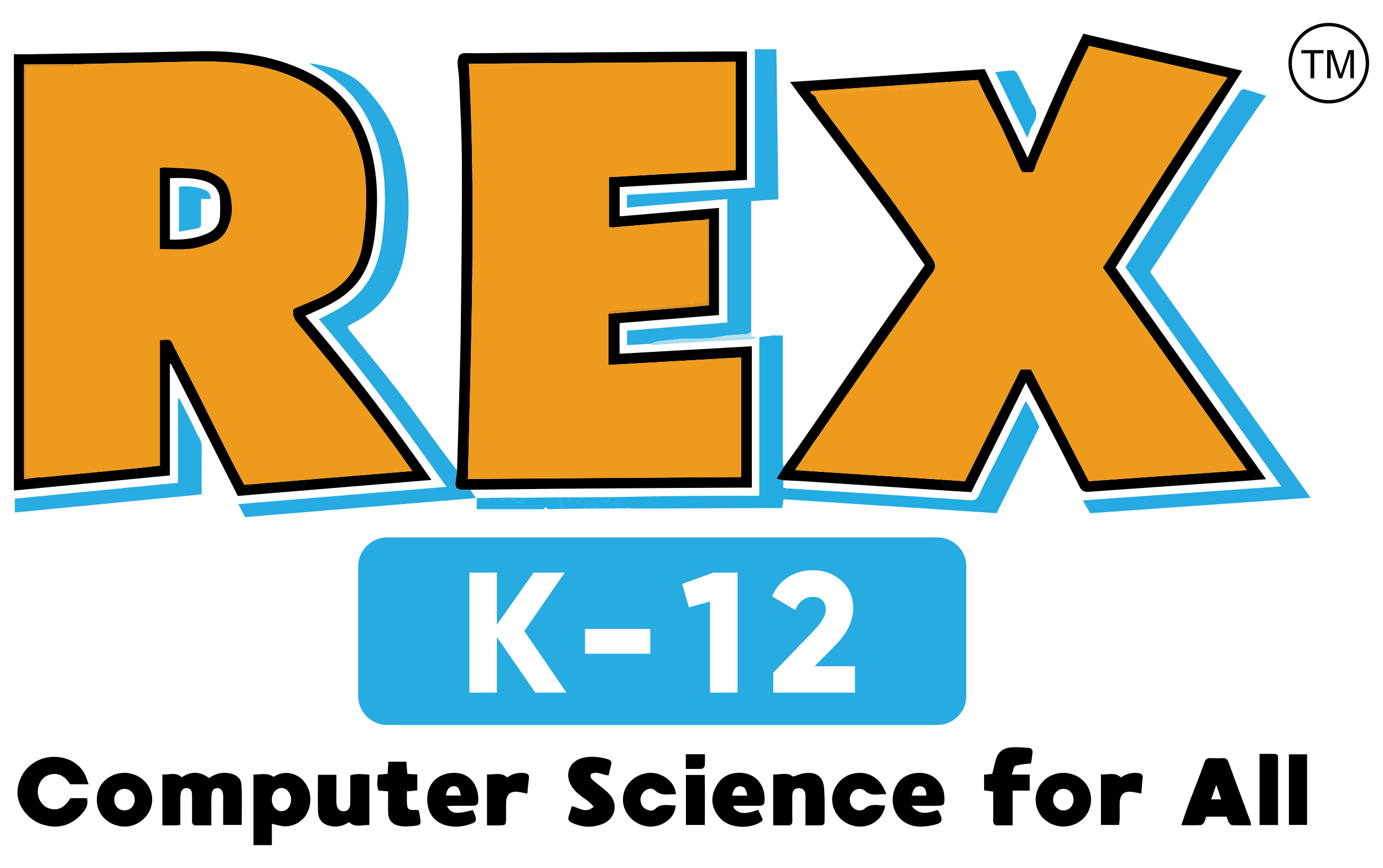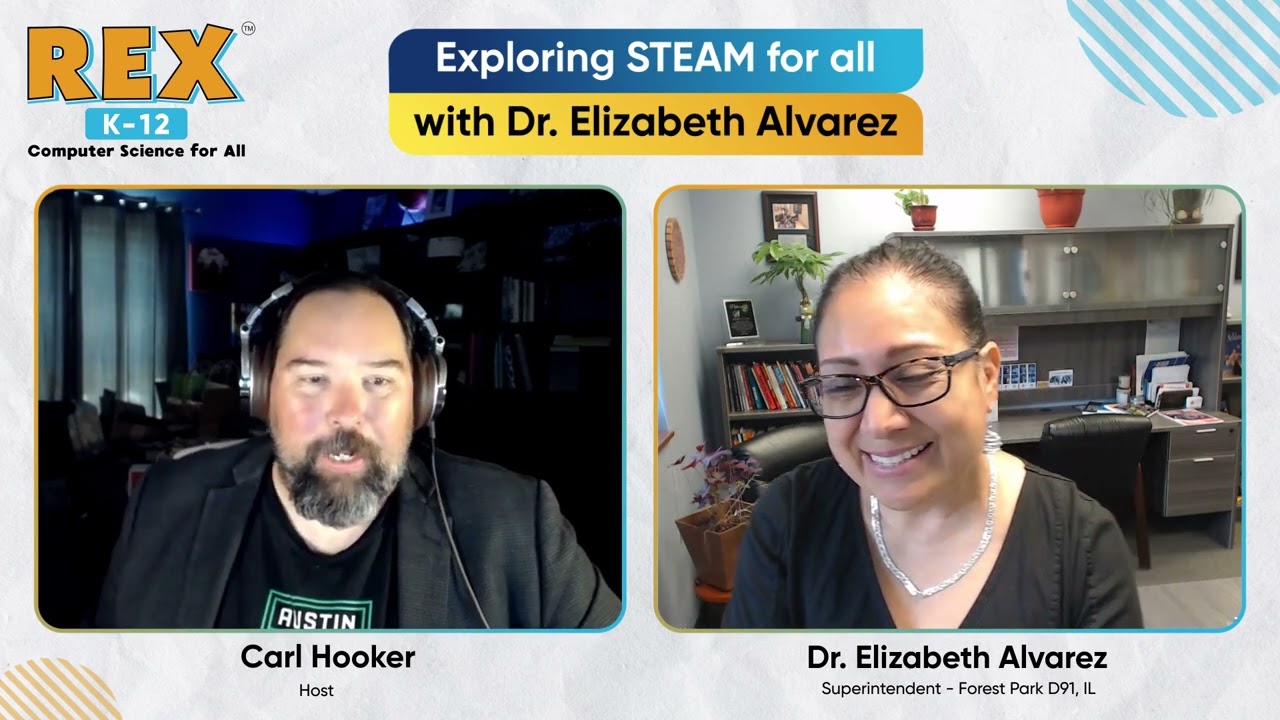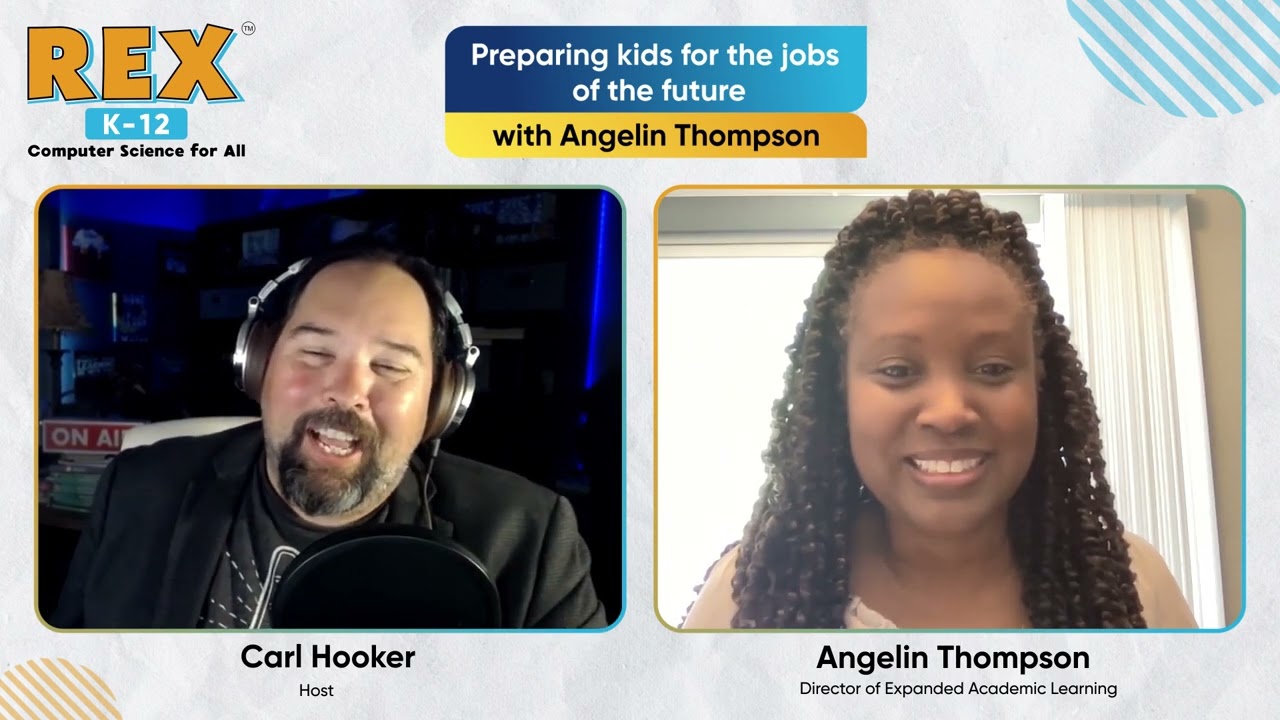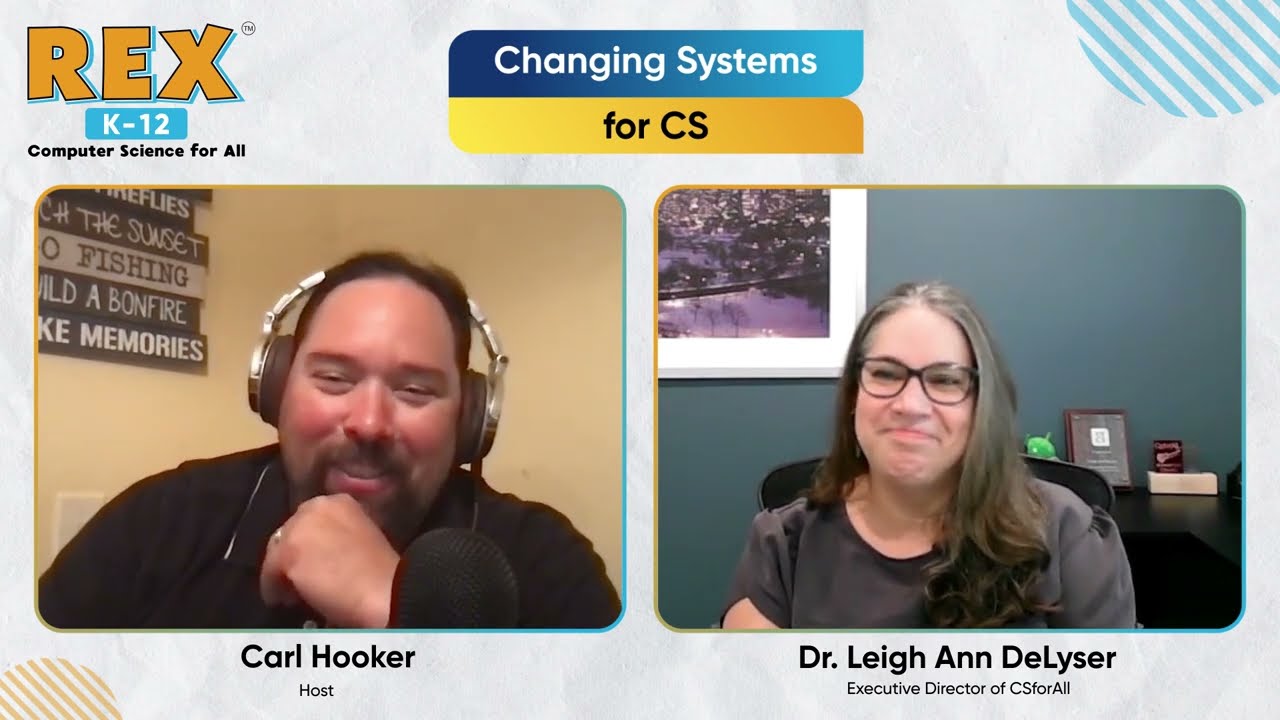In this week’s episode of Let’s Talk CS we chat with Computer Science guru Fran Bromley-Norwood. Fran has done a lifetime’s worth of work bringing CS to the students in her district and the state of Nevada. We reflect on the new updated state requirements that the state of Nevada is promoting to get more students on the CS pathway.
Empowering Students with Future-Ready Computer Science Education: Insights from Fran Bromley Norwood
Introduction:
In today’s rapidly evolving world, computer science education has become a crucial component of preparing students for the future. As parents and educators, it is essential to understand the benefits and challenges associated with implementing computer science in children’s lives. In this blog post, we delve into the insightful experiences and expertise of Fran Bromley Norwood, a distinguished computer science and cybersecurity administrator in the Clark County School District. Let’s explore Fran’s journey, the evolution of computer science education, challenges faced, and practical tips for successfully integrating computer science into students’ lives.
Fran Bromley Norwood: A Leader in Computer Science Education:
Fran Bromley Norwood is a highly regarded figure in the field of computer science education. With a wealth of experience and a passion for empowering students, Fran has made significant contributions throughout her career. As the driving force behind the initiation of computer science and cybersecurity programs of study, she strives to prepare students for industry positions. Her accolades and upcoming role as Vice President of the Engineering and Technology Education Division within the Association for Career and Technical Education testify to her expertise and dedication.
The Evolution of Computer Science Education:
Computer science education has come a long way, from the early days of programming languages like Cobol and Fortran to the modern languages like C++ and Java that dominate the industry today. Fran emphasizes the importance of teaching these programming languages to students, as they equip them with essential skills required in our increasingly digital age. By introducing students to a variety of programming languages, we can foster their creativity, problem-solving abilities, and logical thinking.
Challenges and Successes in Computer Science Education:
One of the primary challenges in computer science education is attracting more students to join computer science programs and pursue careers in the field. Fran sheds light on the positive impact of supportive state-level initiatives, which have resulted in the establishment of CT programs of study, K-12 computer science standards, and graduation requirements. However, the scarcity of endorsed educators and proper training remains a significant obstacle. Fran discusses the importance of providing teachers with the necessary resources, endorsement opportunities, and training courses to enhance their confidence in teaching computer science effectively.
Overcoming Challenges and Inspiring Students:
To overcome these challenges, Fran encourages educators to overcome their intimidation and embrace computer science education alongside their students. By offering training courses and endorsement programs, teachers can gain the confidence they need to guide students in their computer science journeys. Additionally, Fran emphasizes the value of introducing students to the exciting world of artificial intelligence (AI) and promoting digital citizenship. Developing an understanding of AI and its responsible use empowers students to navigate the ethical considerations surrounding emerging technologies.
Balancing AI and Academic Integrity:
As AI tools like chat GPT become more prevalent, concerns about academic integrity arise. However, Fran believes that incorporating AI into student learning experiences can be highly beneficial. It is crucial for students to learn how to ask the right questions, critically analyze AI outputs, and discern when and how to use AI tools ethically. Educators and schools must prioritize digital citizenship education to ensure students understand the appropriate use of AI and uphold academic integrity.
Implementing Computer Science in Students’ Lives:
For parents and educators seeking to implement computer science education, Fran suggests starting early. Introduce computer science concepts from kindergarten and provide hands-on learning experiences that foster creativity, problem-solving, and collaboration. Engaging coding activities and projects enable students to develop computational thinking skills and a strong foundation in computer science. Leveraging comprehensive computer science platforms like Rex K-12 can provide structured courses and resources to support students’ learning journeys.
Conclusion:
We express our gratitude to Fran Bromley Norwood for sharing her invaluable insights and expertise in computer science education. Integrating computer science into students’ lives is crucial for equipping them with future-ready skills and preparing them for an ever-advancing technological landscape. By overcoming challenges, inspiring students, and fostering digital citizenship, parents and educators can empower the next generation to thrive in a technology-driven world. Together, let’s ensure that every student has access to quality computer science education and the opportunities it brings.













